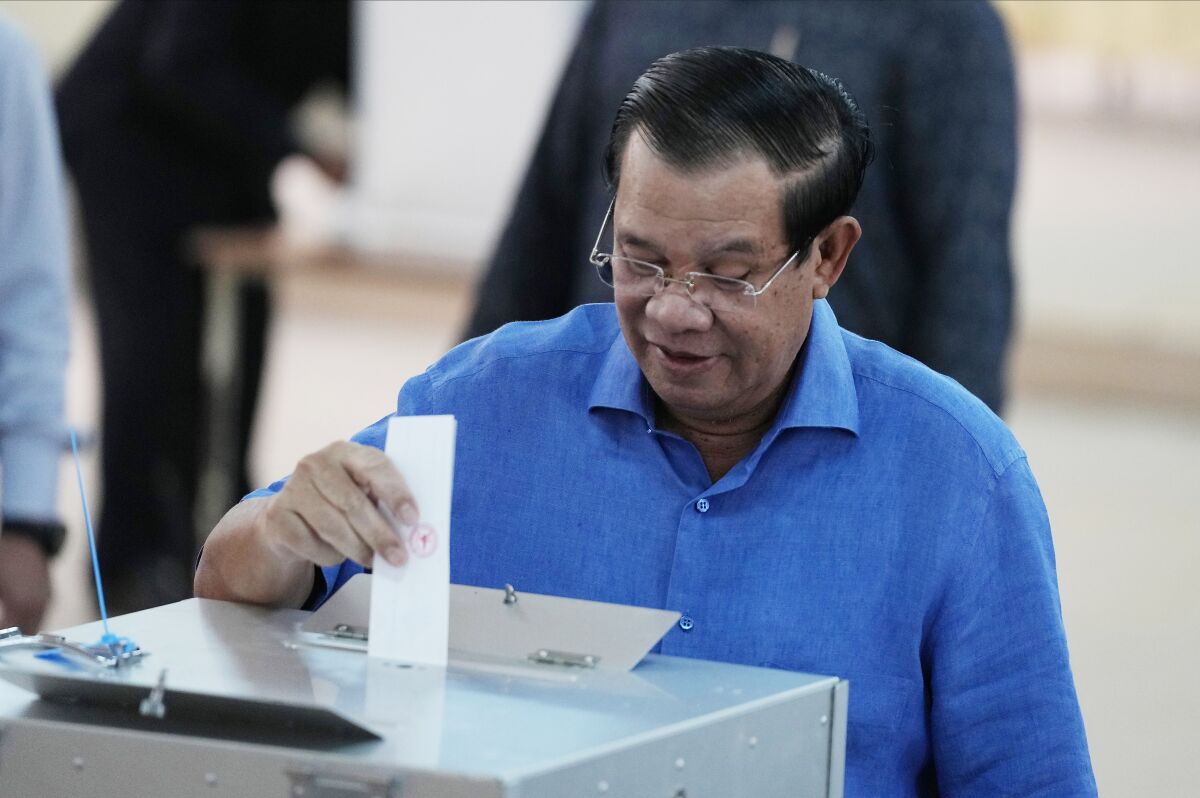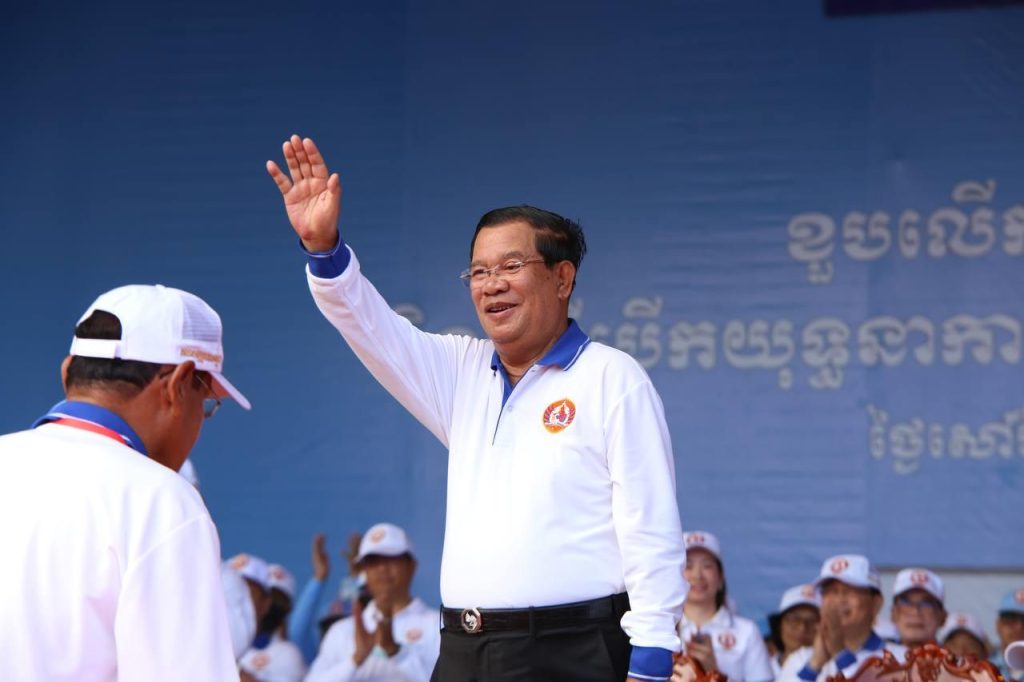Cambodia’s election commission announced on Tuesday that over 500,000 ballots were spoiled in last month’s national election, which critics have labelled a fraud because all opposition parties were forbidden from competing.
After nearly 40 years in power, Prime Minister Hun Sen will give over power to his son later this month after the ruling Cambodian People Party (CPP) easily won the July 23 election.
The CPP received 80% of the 8.2 million votes cast, according to the National Election Committee (NEC), in the first formal announcement of the results on Tuesday.
According to Reuters, over 440,000 ballots – or one in every 18 – were rejected, despite the election’s high turnout of 85%.
According to NEC official Dim Sovannarom, the amount of spoilt ballots was lower than in the 2018 election, when state authorities also abolished the pro-democracy opposition Candlelight party.
Authorities had warned voters with severe punishment if they spoiled ballots, boycotted the election, or encouraged others to do so.
Opposition parties and human rights organisations claim Hun Sen has undermined democratic institutions while cracking down on opponents and critics for years. The government has denied such allegations.
Hun Sen’s rise to power in Cambodia
Hun Sen was born on August 5, 1952, in Kampong Cham province. He joined the Khmer Rouge in the early 1970s but later defected to Vietnam. With the Vietnamese overthrow of the Khmer Rouge in 1979, Hun Sen was appointed as the foreign minister of the newly established People’s Republic of Kampuchea, and he later became prime minister in 1985.
Hun Sen is one of the longest-serving leaders in Asia, holding the position of Prime Minister of Cambodia since 1985. His rule has seen a mix of development, political maneuvering, and allegations of authoritarianism.
His political career has been marked by a combination of strategic alliances, political maneuvering, and the use of force or threat to consolidate power. Over the years, he has managed to neutralize political rivals through a combination of co-optation and suppression.
Under his leadership, Cambodia has seen significant economic growth, especially in the garment export and tourism sectors. His government has also formed strong ties with China, which has become a significant investor and ally for Cambodia. This relationship has sometimes been at the expense of traditional Western allies, especially given concerns over human rights and democratic practices in Cambodia.
Hun Sen’s tenure has not been without controversy. Numerous human rights organizations have accused his government of suppressing opposition parties, silencing critical media outlets, and overseeing a judicial system that largely bends to the ruling party’s will.
His ruling Cambodian People’s Party (CPP) have won several elections, but these elections have often been criticized by observers for perceived irregularities or suppression of the opposition.
His legacy is multifaceted. On one hand, he has brought stability to a country that experienced the horrors of the Khmer Rouge and civil war. Under his leadership, Cambodia has seen significant economic growth and infrastructural development. On the other hand, his leadership style and the allegations of human rights abuses have drawn significant criticism.







